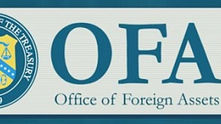Mali Sanctions Renewal Vote: Security Council Faces Decision Amidst Ongoing Challenges
|
The Mali sanctions regime, established through Resolution 2374 in September 2017, was designed to pressure Malian parties into implementing the 2015 Agreement on Peace and Reconciliation in Mali.
The sanctions criteria include engaging in hostilities violating the peace agreement, obstructing its implementation, and supporting or financing those breaking it.
On August 30th, the United Nations Security Council convened to vote on the renewal of the Mali sanctions regime. The vote followed extensive negotiations and deliberations among Council members, with two competing draft resolutions on the table. This vote holds significant implications for Mali's peace process, especially given the ongoing drawdown of the Multidimensional Integrated Stabilization Mission in Mali (MINUSMA).
Competing Draft Resolutions
France and the UAE's Resolution: France and the United Arab Emirates (UAE), co-penholders for this year's sanctions renewal, proposed a draft resolution that aimed to extend the Mali asset freeze and travel ban sanctions until August 31st, 2024, and prolong the mandate of the Panel of Experts that supports the 2374 Mali Sanctions Committee until September 30th, 2023.
Russia's Resolution: In contrast, Russia presented a draft resolution seeking to renew the sanctions measures for an additional year while dissolving the mandate of the Panel of Experts.
Negotiations on the Draft Resolution
France and the UAE worked on a draft resolution to minimize potential tensions with Mali, which has accused the Panel of Experts of bias and exceeding its mandate. Mali's request to terminate the sanctions regime added complexity to the negotiations. China and Russia emphasized the importance of listening to Mali's concerns to gain its support for the sanctions regime.
The Council's African members (A3) argued against ending the mechanism, citing the resurgence of clashes between parties. During bilateral discussions, Russia proposed revising the sanctions regime's mandate to find a middle ground. France and the UAE discussed with Council members and Mali to explore possible solutions, but the differences remained challenging to bridge.
Implications of the Russian Veto
Stalemate in Security Council: The Russian Federation's veto resulted in a deadlock within the Security Council, preventing the renewal of sanctions against those obstructing Mali's peace agreement. This situation raises concerns about the Council's effectiveness in addressing critical regional security issues.
Uncertainty in Mali: The failure to renew sanctions may create tension in Mali's peace and stability efforts. The sanctions were initially imposed to support the implementation of the 2015 peace agreement, which remains vital for long-term peace in Mali.
MINUSMA Drawdown Challenges: As MINUSMA undergoes a drawdown, maintaining a stable environment is crucial. The lack of renewed sanctions may challenge the mission's safe and orderly withdrawal.
Regional Discontent: Several Council members expressed regret over the Russian Federation's veto, emphasizing the importance of the Mali sanctions regime and the Panel of Experts in supporting peace and stability. This highlights potential discontent among Council members and raises questions about the consensus-building process.
Final Thoughts
The Security Council's failure to renew sanctions in Mali due to the Russian Federation's veto has implications.
As Mali faces ongoing challenges and uncertainties, the international community should continue to work towards finding solutions that promote peace and support the implementation of the 2015 peace agreement. The situation underscores the complexities of international diplomacy and the need for cooperation to address pressing global issues.
The Council's decision, made on August 30th, will shape the events in Mali in the coming months.
Stay informed and ahead of the curve in the dynamic world of sanctions
As a Compliance Officer or Chief Compliance Officer, understanding how sanctions regimes work is vital to mitigating the risk of non-compliance in your organization.
Keep up with the sanctions world with our monthly case study analysis to help you make decisions in comparable circumstances.
Contact us at info@pst.ag for more information.



